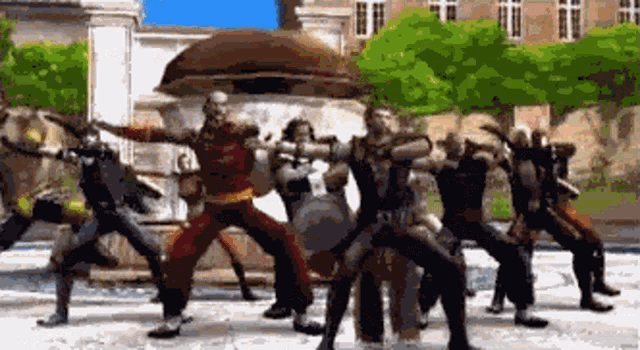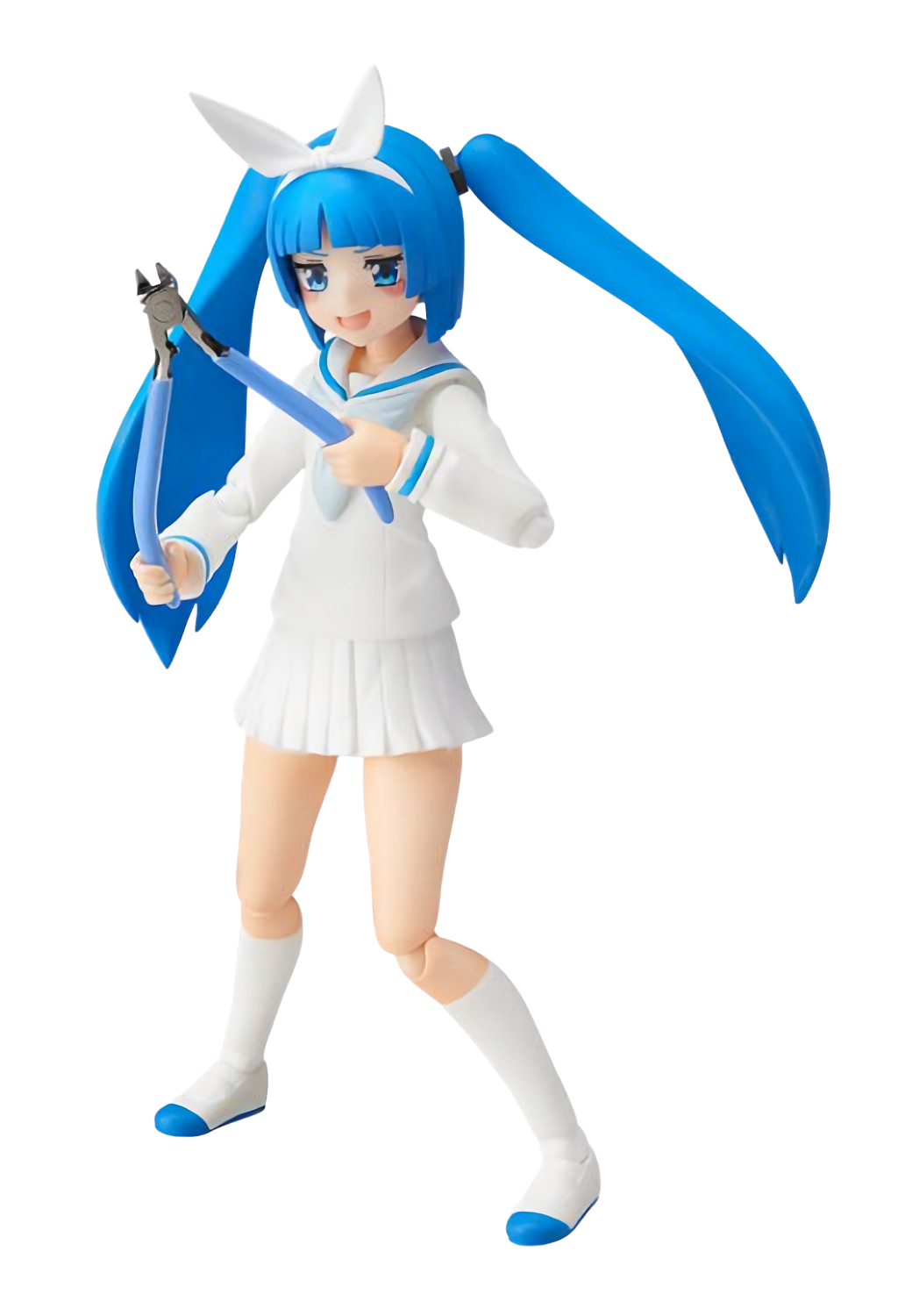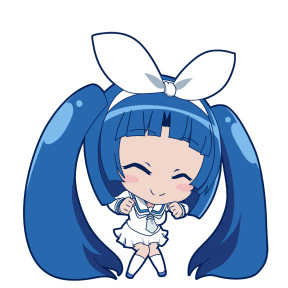it's not miku MOM she's a japanese mascot character named nipako

(collage by me lol)
Who is Nipako?
Nipako (real name Celine P. Nippern, apparently) is a princess from the distant Planet Kougu who came to Earth after growing interested in human culture. As an alien, her species feeds off of a special energy called Monozukuri, which humans generate whenever we create something.
But, actually though, Nipako is a mascot character created by model-kit tool company God Hand to advertise their Ultimate Nippers, a line of high-end hobby pliers meant for building those little robot men your grandson makes in his basement.

In 2020, seven years after her introduction in 2013, Nipako's role as official mascot was formally retired. No new official merchandise of her is currently being made, but as a parting gift, she became somewhat 'open-source'; existing trademarks on her character have been lifted for (not-for-profit) fan projects.
She managed to go out with two Nendoroids, a Figma, an Azone doll, a few licensed model kits including a Fucking Gun, and a whole lot of garage kits, which is understandable given her whole deal.
Why is Nipako?

So, you may be wondering: why do I, vocal disliker of horrifying consumerism, like Nipako, the corporate mascot for a $60 pair of fucking pliers? Simple: I am a brainless rube who caves at the sight of cute, well-designed gijinka.
Nipako is, as a character design, great! She stands on her own without any introduction, and in the context of being a mascot, she has a nice sense of cohesion with the product she's modeled after. It's good marketing, regardless of whether that is actually deserving of praise.
And there's something genuinely kind of nice about the canon she's been imbued with. I have a real respect for the people convincing the world that our shitty hobbies actually have value and mean something. I enjoy making model kits myself, and it's something that non-nerdosphere people don't tend to "get" as a worthwhile use of my time.
Nipako's story views the model kit hobby primarily as an act of creation rather than consumption, a work of passion rather than "want of new stuff." And, biased or not, that's how it's always felt to me.

